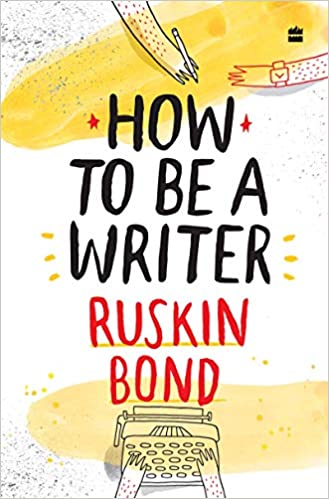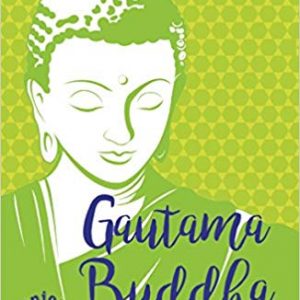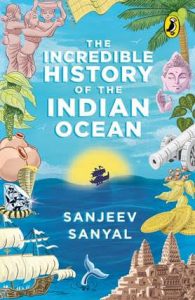There are many books that tell you how to be a writer. However, when someone of the stature of Ruskin Bond decides to part with some advice, it’s worth its weight in gold! How to Be a Writer by Ruskin Bond (HarperCollins Children’s Books) addresses this question to which many seek the answer. In his trademark style filled with humour and peppered with examples from his life, Ruskin Bond tells young readers about the enticing world of writing.

Not the one to mince words, but rather to say what he feels in simple and touching words, that are often filled with humour, is what Bond does best. This book is also typically Bond- straight from the heart, simply articulated and peppered with humour. A lot of what he writes in the narrative has to do with the ‘inner work’ required to become a writer. For example, introspection and contemplation are essential qualities of a writer. A writer must also have time alone, and of course, enjoy it! And this is just the beginning of how to be a writer….
Bond supports his observations with examples from his own life. As we read about his own development as a writer, we also learn more about what being a writer entails. For each ‘tip’ that he gives on how to be a writer, he supports it with an example from his life. For instance, he mentions that reading is the key to being a good writer. He also mentions the books that influenced him as a child. Along with instances from his own life, Ruskin Bond has been quite generous with examples from the vast body of literature. He mentions various books and writers at different occasions throughout the book. I found these also quite appealing! You will find tips not only on how to write, but also what to read.
“If you are any good you will make a living with your pen- as I have done for nearly seventy years” he says, encouragingly to young wannabe writers. The book is organised into different chapters, each presenting a simple question about the writing profession. Each chapter leads to the next in a seamless manner. There are practical tips filled with many examples and quips to humour you along the way. Some of the questions and themes addressed include how a writer must record ideas; how they must keep things simple and not really add to the confusion that already exists; Being original; finding your unique style; dealing with criticism; the writer’s block and publishing your work.
This is a book that any lover of literature will enjoy, even if he or she does not want to become a writer! I think the book is most appealing to school-goers of all ages. Even if they don’t want to be writers, I find that this book has some wonderful insights about how one can truly live the passion we feel for a subject or a profession. From that viewpoint it is a book that has a wide appeal. And of course, a bit of spike in your creative writing skills thanks to the wonderful tips in the book is not a bad idea too! Don’t you think so?




